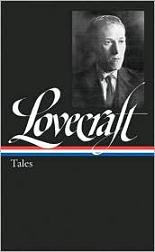
Saturday
Ian McEwan
278 pages
published in 2005
I’ve been suspicious of Ian McEwan ever since I read his Book prize winning novel Amsterdam and almost threw the book against the wall at the denouncement where McEwan descended into stupid cliches about the Netherlands’ attitude towards euthenasia. That suspicion deepened when it turned out McEwan, like Martin Amis had turned into a permanent bedwetter after the September 11 attacks. He’s been less outspoken than Amis, but he has said enough for me to know I dislike his politics, which seems to be of the Decent Leftist persuasion, being obsessed with the struggle against “Islamism”, the threat of terror attacks and the vulnerability of the western democracies. As with Amis, “9/11” seems to have functioned as McEwan’s midlife crisis, his fear and doubts about his own encrouching mortality being confused for insight into the general condition of the world. It’s this mixture of Decent politics and midlife crisis that’s been poured out into Saturday. I didn’t want to read it at the time when it first came out, being warned off it by various reviews, but four years on I thought it would be interesting to see if it really was as dire as it was made out to be.
It is.
Had I read this in 2005 it would’ve been thrown against the wall, library book or not. Set on the day of the worldwide anti-war protests on 15 February 2003 a month before the invasion of Iraq, with the London march making regular appearances througout the novel. Not that any of the characters in the book actually go on the march, they all have something better to do. Even the protagonist’s son, described as anti-war doesn’t, as “he doesn’t feel much need to go tramping through the streets to make his point”, confusing making a political statement with narcissism. It’s typical for the entire novel, which hammers this point home again and again from the first encounter with the march, with a street cleaner sweeping up garbage left behind by people going to the march to the last, with the same street cleaner still busy cleaning up behind the march. This way the anti-war protest is reduced to something hypocritical, narcisstic and even frivolous. Saturday only pays lip service to the arguments of the antiwar movement, spelled out explicitely just once, in a row between the protagonist and his daughter, who gets to represent the antiwar side. She gets emotional and slightly hysterical while her father gets to stay calm and collected; later it’s revealed she’s pregnant. In such a way the antiwar movement is constantly dismissed, at best shown as shallow people who mean well but who just don’t realise how bad Saddam is.
